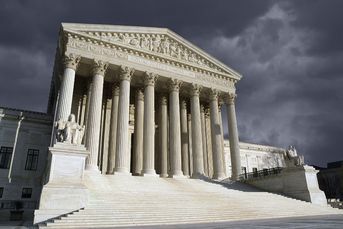401(k) sales will continue to fall: Survey

Record keepers expect figures in the third quarter to be down 22% from a year earlier, according to a report from the Secure Retirement Institute
The COVID-19 crisis has hammered retirement plan sales so far this year, and things will likely get worse, according to a report this week from LIMRA’s Secure Retirement Institute.
Sales were up 17% in the first quarter of the year compared with first quarter of 2019, though they fell sharply during the second quarter, coming in 21% lower than a year prior, the report found. The paper is based on responses from 14 retirement plan record keepers that were surveyed by LIMRA and the Retirement Leadership Forum in April.
Their expectations are that sales will be 22% lower in the third quarter and 14% lower in the fourth quarter, according to the report.
With the economy taking massive hits from the pandemic and the related business closures, employers have been less likely to put their existing plans out to bid, the report found. Further, small businesses have faced enormous financial challenges, with many taking cost-cutting measures including layoffs. The idea of starting a retirement plan is near the bottom of their priorities.
That will all but certainly impact business for retirement plan advisers.
“There aren’t going to be a ton of new plans formed anytime soon,” said Matt Drinkwater, corporate vice president at LIMRA. For advisers, “that’s going to be a struggle.”
Record keepers working primarily with large plans, or those with at least $500 million in assets, said they would be the least affected, with projected sales 5% to 10% closer to their original goals for the rest of the year, according to the report.
The predictions might also have changed slightly, given that the survey was conducted in April, before the resurgence of COVID-19 cases in many parts of the country started pointing to a long recovery.
The situation could be analogous to the fallout from the financial crisis in 2008, Drinkwater said.
“That was a real body blow to the 401(k) industry, but it was really limited to the new plan formation,” he said. “That went down significantly in 2009 and 2010 and started to recover in 2011. Meanwhile, the [plan] takeover business continued to hum along.”
A separate report from the Secure Retirement Institute in April found that about 1,200 new 401(k) plans were started during the first quarter of 2007, and that figure dropped to less than 400 new plans during the third quarter of 2010. To compare, there were nearly 3,000 new plans started in the first quarter of 2019 and more than 1,500 started in the third quarter of that year, according to the April report.
But plan “takeovers,” in which sponsors hired new service providers, did not change as dramatically during the recession. There nearly 1,400 such changes during the first quarter of 2017, and that figure dropped to about 800 during the second quarter of 2008, rebounding to more than 1,200 in the first quarter of 2010, according to the report.
Learn more about reprints and licensing for this article.








